Living a Healthy Life with
Chronic Conditions
Self-Management of Heart Disease,
Arthritis, Diabetes, Depression, Asthma,
Bronchitis, Emphysema and Other
Physical and Mental Health Conditions
FOURTH EDITION
Kate Lorig, RN, DrPH Halsted Holman, MD
David Sobel, MD, MPH Diana Laurent, MPH
Virginia Gonzlez, MPH Marian Minor, RPT, PhD

Copyright 2012 Bull Publishing Company and The Board of Trustees of the Leland Stanford Junior University
All rights reserved. No part of this publication may be reproduced, distributed, or transmitted in any form or by any means, including photocopying, recording, or other electronic or mechanical methods, without the prior written permission of the publisher, except in the case of brief quotations embodied in critical reviews and certain other noncommercial uses permitted by copyright law.
Published by Bull Publishing Company
P.O. Box 1377
Boulder, CO, USA 80306
www.bullpub.com
Library of Congress Cataloging-in-Publication Data
Living a healthy life with chronic conditions : self-management of heart disease, arthritis, diabetes, depression, asthma, bronchitis, emphysema, and other physical and mental health conditions / Kate Lorig [et al.]-- 4th ed.
p. cm.
ISBN 978-1-933503-36-3
1. Chronic diseases--Popular works. 2. Medicine, Popular. I. Lorig, Kate.
RC108.L565 2012
616.044--dc23
2012012061
Printed in U.S.A.
Fourth Edition
17 16 15 14 13 12 10 9 8 7 6 5 4 3 2
Interior design and project management: Dovetail Publishing Services
Cover design and production: Shannon Bodie, Lightbourne, Inc.
To David Bull,
who made this book possible
and Lara Noel Borowski
who taught us about living and dying
Acknowledgments
Many people have helped us write this book. Among the most important are the first 1,000 participants of the Stanford University Chronic Disease Self-Management study. These have been followed by hundreds of thousands of other workshop participants in more than 25 countries and as many languages. All of these people, along with our wonderful workshop Leaders, have told us what information they needed and helped us make adjustments as we went along. All of you have informed this new edition.
There are also many professionals who have assisted us: Sonia Alvarez, MA, MPH, Lara Borowski, MPH, Lynn Beatie, PT, MPT, MHA, Roberto Benzo, MD, Bonnie Bruce, RD, DrPH, Ann Constance, MA, RD, CDE, Nazanin Dashtara, MPH, Laurie Doyle, MPH, Robin Edelman, MS, RD, CDE, Chaplain Bruce Feldstein, MD, Karen Freimark, MEd, Margo Harris, MPH, Peg Harrison, MSW, Margaret Haynes, MPA, Mary Hobbs, MPH, Susan Kayman, PhD, Marty Klein, PhD, Patricia League, RN, John Lynch, PhD, David McCulloch, MD, Cynthia McRae, PhD, Elaine McMahon, MS, RN, Nancy Moline, RN, MEd, CDE, Cheryl Owen, RN, Katy Plant, MPH, Denise Portello, MPH, RD, Catherine Regan, PhD, Richard Seidel, PhD, Joyce Tanaka, RN, MSN, CDE, Sandra Wilson, PhD, Michelle Wong, MPH, MPP. To all of you, your help has been gratefully received.
There are also many friends, leaders, and trainers who have given us wonderful advice and added richness to our thinking: Nancy Brannigan, Mara Hernndez-Marin, Lynne Newcombe, Jim Phillips, Jean Thompson.
A special thanks to Gloria Samuel, who kept us all on track. We would also like to thank our T-Trainers, Master Trainers, and Leaders. There are now thousands of you. You have made many suggestions that have helped us with this new edition.
We would also like to thank the publishers for permission to adapt sections from The Healthy Mind, Healthy Body Handbook (also published as The Mind & Body Health Handbook) by David Sobel, MD and Robert Ornstein, PhD (published by DRx).
Finally, thanks to David Bull to whom this book is dedicated. David was our first publisher and had faith in this project that allowed us to proceed. Without him, there may never have been a book. His son Jim has continued the family tradition with support and encouragement for this fourth edition.
If you would like to learn more about our continuing research, online internet programs, trainings, and materials see our website: http://patienteducation.stanford.edu .
We are continually revising and improving this book. If you have any suggestions or comments that will make the book better, please send them to self-management@stanford.edu.
Disclaimer
This book is not intended to replace common sense, professional medical or psychological advice. You should seek and get appropriate professional evaluation and treatment for problemsespecially unusual, unexplained, severe, or persistent symptoms. Many symptoms and diseases require and beneft from specifc medical or psychological evaluation and treatment. Dont deny yourself proper professional care.
 If your symptoms or problems persist beyond a reasonable period despite using self-care recommendations, you should consult a health professional. What is a reasonable period will vary; if youre not sure and youre feeling anxious, consult a health care professional.
If your symptoms or problems persist beyond a reasonable period despite using self-care recommendations, you should consult a health professional. What is a reasonable period will vary; if youre not sure and youre feeling anxious, consult a health care professional.
 If you receive professional advice in confict with this book, you should rely upon the guidance provided by your health care professional. He or she is likely to be able to take your specifc situation, history and needs into consideration.
If you receive professional advice in confict with this book, you should rely upon the guidance provided by your health care professional. He or she is likely to be able to take your specifc situation, history and needs into consideration.
 If you are having thoughts of harming yourself in any way, please seek professional care immediately.
If you are having thoughts of harming yourself in any way, please seek professional care immediately.
This book is as accurate as its publisher and authors can make it, but we cannot guarantee that it will work for you in every case. The authors and publisher disclaim any and all liability for any claims or injuries that you may believe arose from following the recommendations set forth in this book. This book is only a guide; your common sense, good judgment, and partnership with health professionals are also needed.
CHAPTER 1
Overview of Self-Management
NOBODY WANTS TO HAVE a chronic long-term illness. Unfortunately, most of us will experience two or more of these conditions during our lives. This book has been written to help people with chronic illness explore healthy ways to live with a physical or mental condition. This may seem like a strange concept. How can you have an illness and live a healthy life? To answer this, we need to look at what happens with most chronic health problems. These diseases, be they heart disease, diabetes, depression, liver disease, bipolar disorder, emphysema, or any one of a host of others, cause most people to experience fatigue as well as to lose physical strength and endurance. In addition, they may cause emotional distress, such as frustration, anger, anxiety, or a sense of helplessness. Health is soundness of body and mind, and a healthy life is one that seeks that soundness. Therefore, a healthy way to live with a chronic illness is to work at overcoming the physical, mental, and emotional problems caused by the condition. The challenge is to learn how to function at your best regardless of the difficulties life presents. The goal is to achieve the things you want to do and to get pleasure from life. That is what this book is all about.


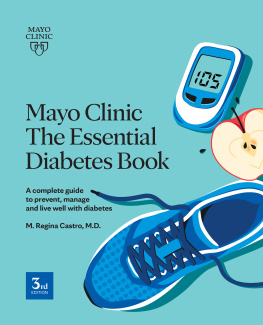
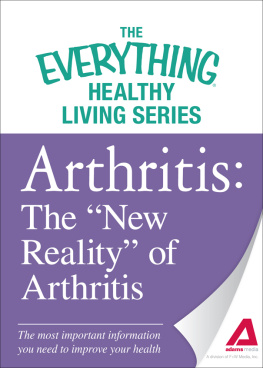
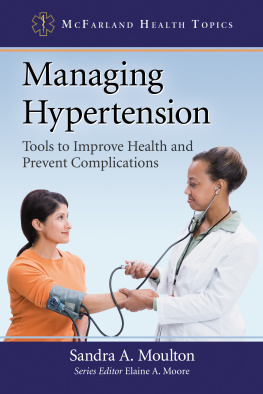
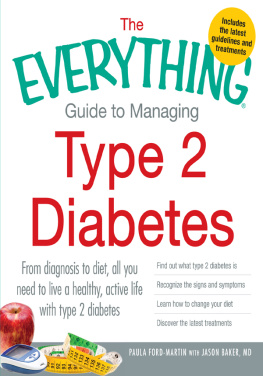
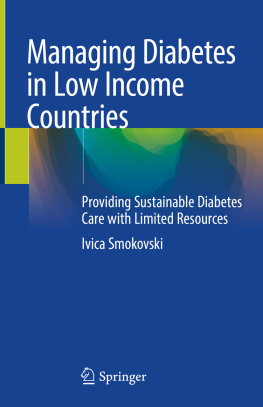
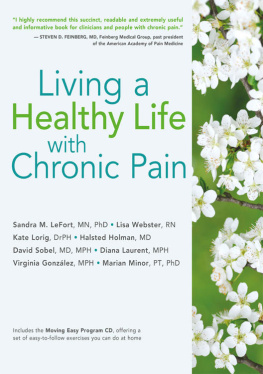


 If your symptoms or problems persist beyond a reasonable period despite using self-care recommendations, you should consult a health professional. What is a reasonable period will vary; if youre not sure and youre feeling anxious, consult a health care professional.
If your symptoms or problems persist beyond a reasonable period despite using self-care recommendations, you should consult a health professional. What is a reasonable period will vary; if youre not sure and youre feeling anxious, consult a health care professional.